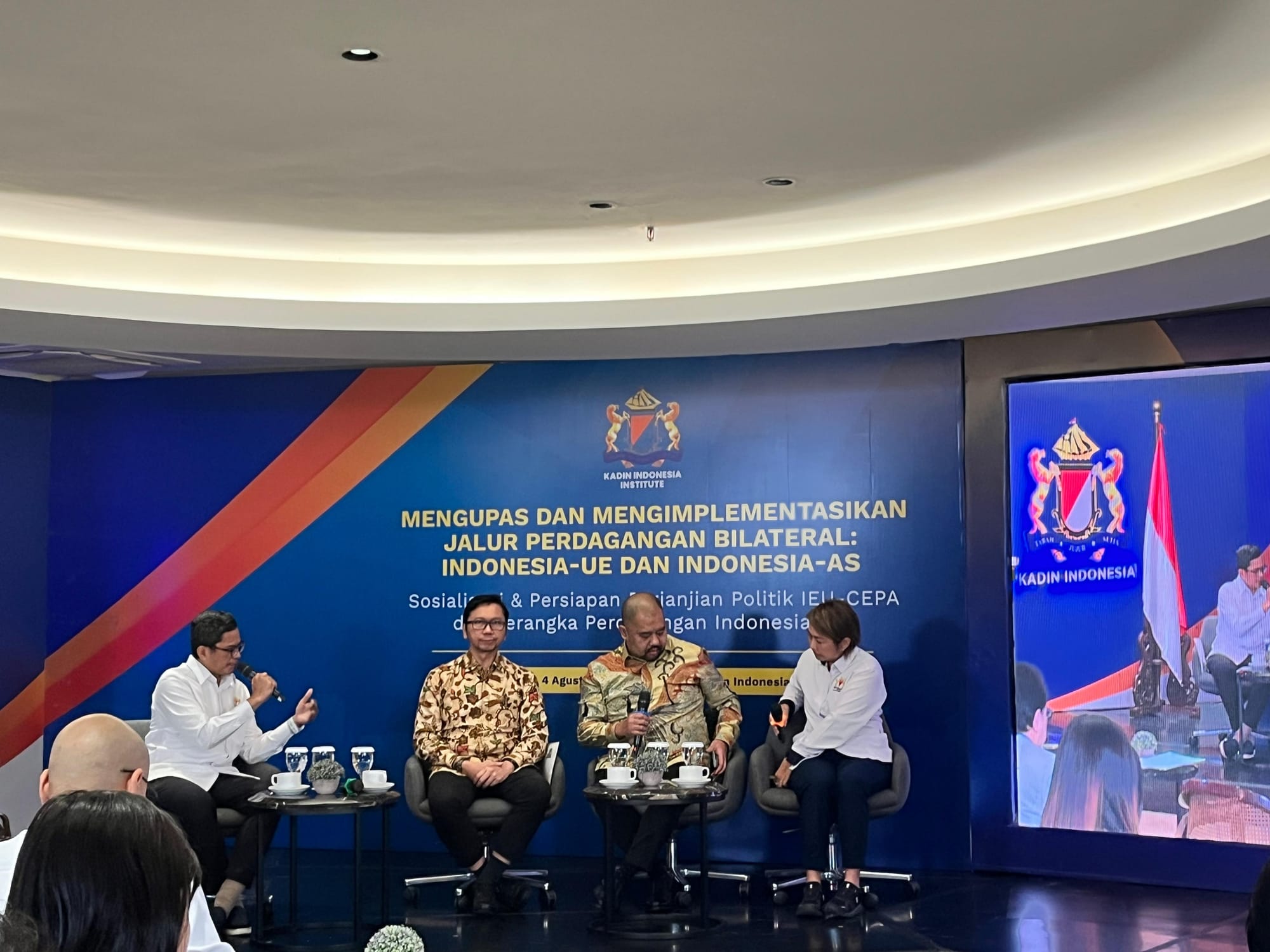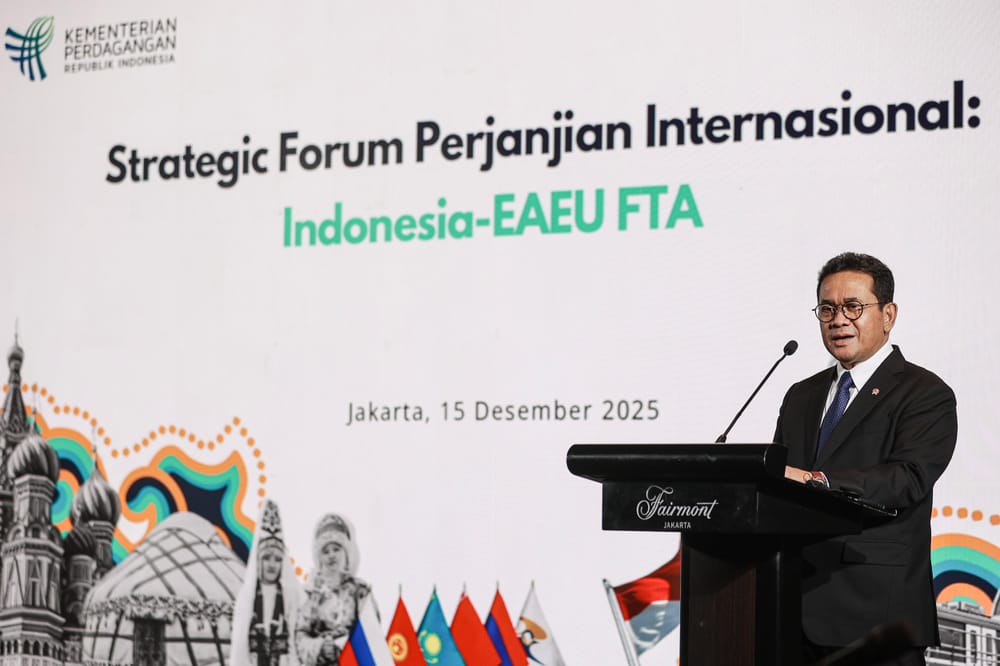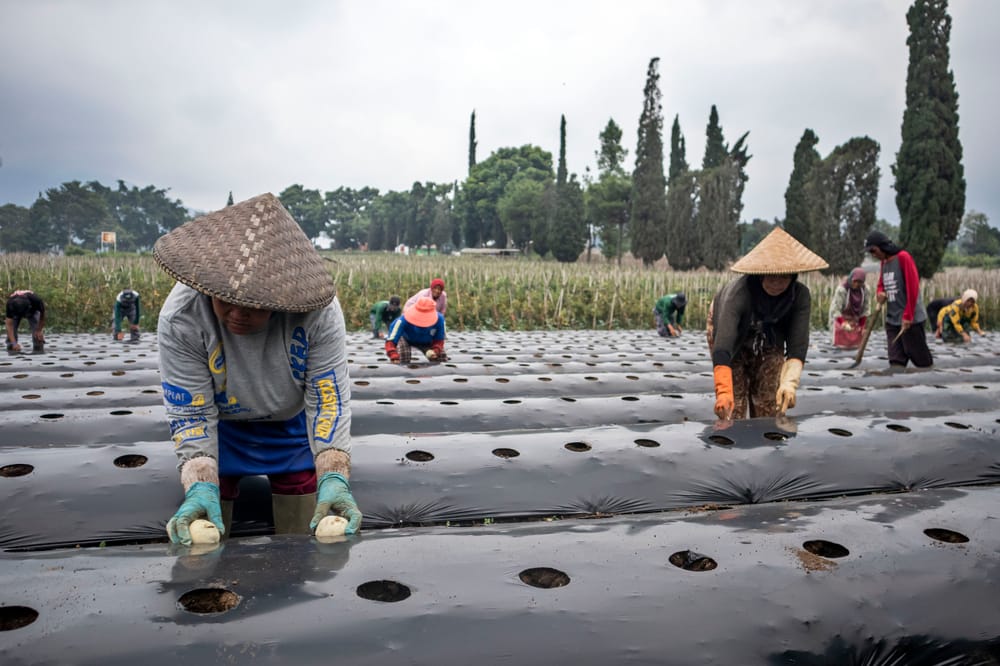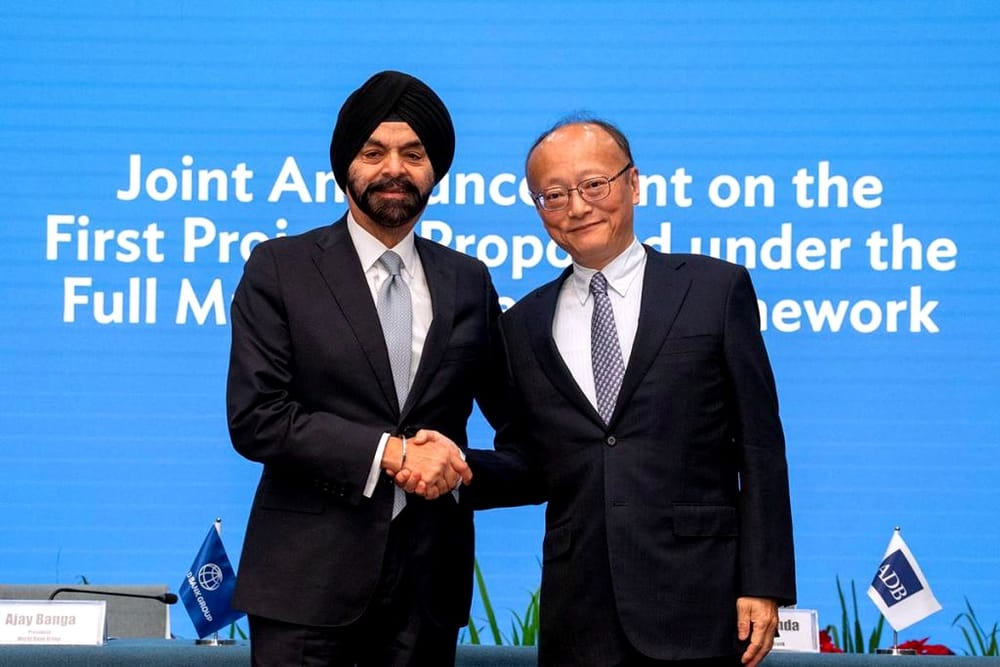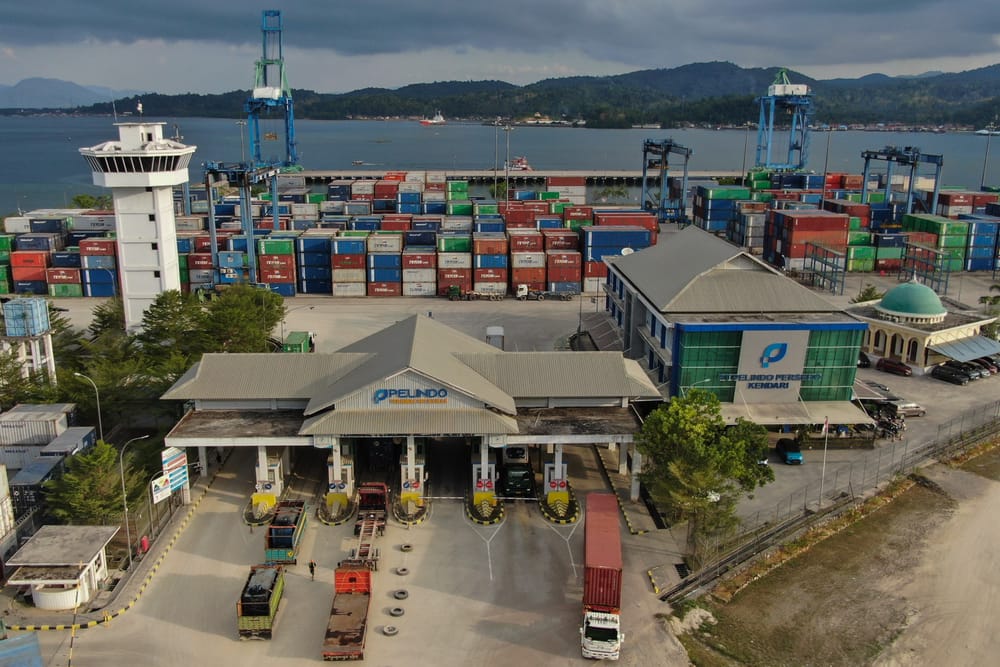Hundreds of documents and dozens of official forums have been conducted. Since last July, the government has been holding meetings after meetings with the European Union delegation, both online and face-to-face, held almost every week to tidy up all the articles.
All the hassle finally paid off: the finalization of the Indonesia–European Union Comprehensive Economic Partnership Agreement (IEU–CEPA) can be achieved.
This agreement, which is claimed to be more than just a trade promise, is expected to make Indonesia an important player in the global supply chain, especially in the renewable energy sector such as electric vehicles (EV) and green investment.
“It seems like it shouldn't be delayed any longer. This is the right momentum, the best momentum,” said Djatmiko Bris Witjaksono, Director General of International Trade Negotiations at the Ministry of Trade, in a discussion in Jakarta, Monday (04/08/2025).
For Indonesia, the breakthrough of this agreement is like getting a golden ticket to penetrate one of the most stringent markets in the world with a population of more than 700 million people.
"The IEU is really interested, committed to investing in renewable energy, EV (electronic vehicle), ICT (information, communication, and technology), and pharmaceuticals," explained Djatmiko.
Once it comes into effect, the government is targeting almost 99 percent of Indonesia's export products to Europe to receive 0 percent tariff preference.
Vice Chairman for Trade and Foreign Agreements of the Indonesian Chamber of Commerce and Industry, Pahala Mansury, said that this cooperation agreement will pave the way for Indonesia to reduce its dependence on exports to the Chinese market.
"Of the 25 chapters agreed upon, one of them concerns concrete steps so that business actors, especially UMKM, can penetrate strict European standards, starting from product certification, sustainability, to product safety," he said.
The government is targeting to agree on the IEU–CEPA agreement by the end of September. It is estimated that after the legal and domestic ratification process runs for 6 months, the agreement will be signed no later than quarter II–III 2026.
Main stage
Vice Chairman of Kadin for Foreign Affairs, James T Riady, said that the development of a green industry ecosystem will also focus on technology transfer and capacity building.
"We don't want to just sell raw nickel. Our target is to become part of the global supply chain, producing batteries, EV components, and even electric cars," said James.
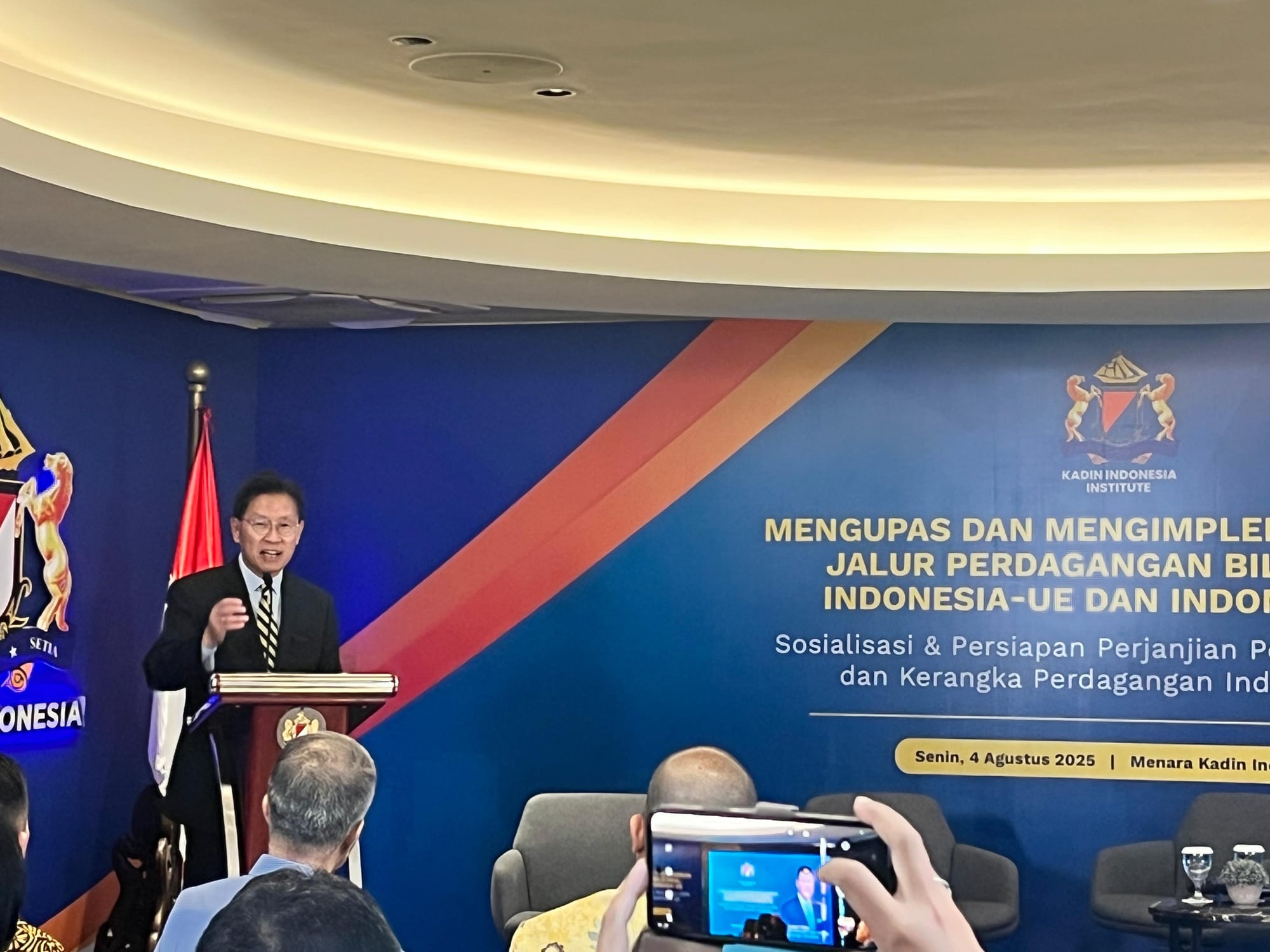
According to him, several European producers have shown their interest. Among others, Eramet, a French company that has started production in Indonesia.
Other companies, such as Schneider Electric, are targeting increased assembly capacity for electrical equipment and Volkswagen.
"Indonesia has critical minerals that they need. But the key to success lies in downstreaming, technology transfer, and compliance with green standards," added James.
James mentioned a number of challenges in facing the European market, such as low carbon footprint requirements, traceability, and full compliance with sustainability protocols, which are not necessarily understood by industry players.
"This is a rare opportunity. We don't want to just be spectators," James asserted.
The IEU–CEPA trade agreement not only opens the way for textiles and furniture, but also low-carbon products such as steel. The domestic steel industry now has the opportunity to penetrate the European market, which is increasingly demanding sustainability standards, especially from the automotive, construction and electronics sectors.
According to Bhima Yudhistira, Director of Celios, this opportunity will truly be felt if the government prepares the right incentives.
"For example, providing electricity tariff discounts for the steel industry that switches from blast furnace to electric arc furnace (EAF) technology to reduce carbon emissions," Bhima told SUAR through a written statement online, Monday (14/07).
In addition to incentives, he emphasized the importance of the government's role in opening market access through diplomacy. "There needs to be trade diplomacy facilities that help matching between our steel producers and potential buyers in Europe," he said.
Equally important, according to Bhima, is a cheaper financing scheme to encourage investment in the export-oriented steel sector. "Low-interest loans can accelerate the transformation of the steel industry to be greener and more competitive in the global market," he concluded.
Indonesia and Malaysia, as the world's largest palm oil exporters, have long considered the European Union (EU) to be engaging in trade discrimination. Conversely, they also question the impact of palm oil production on the environment.
The clearing of oil palm land is criticized for often causing deforestation and illegal logging, as well as causing the loss of habitat for various animals.


